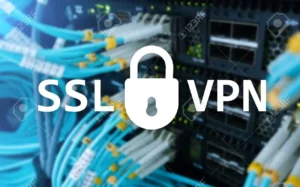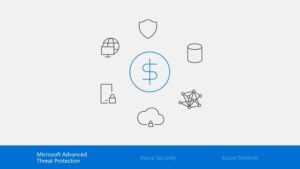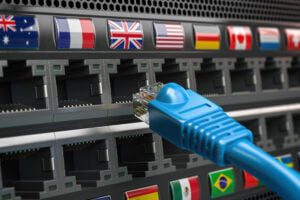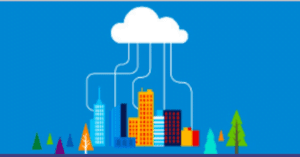There are several methods for implementing secure remote access, but three of the most common are:
- VPN (Virtual Private Network): A VPN is a virtual private network that uses the public Internet infrastructure to provide secure remote access. VPN allows remote devices to connect to a private network using encryption to secure communication and ensure data security.
- SSH (Secure Shell): SSH is an encrypted network protocol that allows one computer to connect to another computer in a secure and authenticated manner. SSH is widely used for remote access to network servers and devices, allowing users to remotely connect to and manage servers and devices using an encrypted connection.
- TLS (Transport Layer Security): TLS is a security protocol that provides secure communications on the Internet. TLS is used to secure web connections, such as e-commerce websites and online banking, by ensuring that the communication between the user and the server is encrypted and authenticated. TLS is widely used in many applications and services to provide communications security.
Organizations are subject to a variety of potentially emergency situations such as disease, floods, hurricanes, and power outages. It is crucial that business continuity plans are established to ensure that the organization's operations can be maintained in the face of adversity and be prepared to deal with potential disasters.
Understand the importance of secure remote access to maintain your business continuity plan.
Summary
Remote Working Support
Firstly, the ability to support remote working is essential to ensure business continuity and security with remote working.
In this sense, next-generation firewalls from FortiGate (NGFWs) have built-in support for virtual private networks (VPNs) IPsec, in order to allow remote employees a secure remote accessThe company's network.
With the protection of endpointprovided by FortiClientWith FortiAuthenticator, organizations can not only securely support remote working, but also maintain business continuity.
The ability to securely support remote working is an essential component of any organization's business continuity plan, especially disaster recovery.
In addition, the FortiGate NGFW have Integrated support for IPsec VPNswith the intention of providing a secure connection for employees working at alternative workplaces.
Secure Remote Work
Secure remote working with FortiGate and FortiClient Endpoint NGFWs
Primarily, IPsec and SSL VPNs integrated into every FortiGate NGFW, offer a flexible deployment. In other words, remote users can take advantage of a non-deterministic customer experience, as well as gain access to additional capabilities through a robust Endpoint integrated into the FortiClient endpoint.
Above all Fortinet solutions are designed to be easy to use from initial purchase to end of life. In addition, the FortiGate NGFW and the Access Point FortiAP include "zero touch" deployment functionality.
As a result, devices deployed at remote sites can be pre-configured before shipment, thus enabling automatic on-site installation that ensures business continuity and home office support.
Security Fabric Fortinet
Surprisingly, with Fortinet Security Fabric, all devices in an organization, including those deployed remotely to support remote working, can be monitored and managed from a single dashboard.
In addition, with a platform FortiGate NGFW or FortiManager centrally managed and deployed at a company's headquarters, IT staff can get visibility total of all connected devices, regardless of the deployment situation.
Certainly in the event of a natural disaster or other event that disrupts business operations, an organization must be able to transition quickly to a fully remote workforce. To this end, Table 1 shows the number of concurrent VPN users that each model of the FortiGate NGFW can support it.
Other Resources
Other Features for Secure Remote Access
First, in addition to offering encryption of data in transit via a VPN, the solutions Fortinet offer several other features that can help your organization secure remote working. These features include:
| Model | Concurrent VPN SSL users | Concurrent users IPsec VPN | Managed FortiAPs (Tunnel mode) |
| 100E | 500 | 10,000 | 32 |
| 100F | 500 | 16,000 | 64 |
| 300E | 5,000 | 50,000 | 256 |
| 500E | 10,000 | 50,000 | 256 |
| 600E | 10,000 | 50,000 | 512 |
| 1100E | 10,000 | 100,000 | 2,048 |
| 2000E | 30,000 | 100,000 | 2,048 |
| All Larger Models* | 30,000 | 100,000 | 2,048 |
| *3300E supports 1,024 Tunnel Mode APs |
Use Cases - Remote Working
First, we know that not every employee in an organization requires the same level of access to company resources when working remotely.
In this sense, the Forti One IT together with Fortinet, is able to provide customized home office solutions for all remote workers:
At the same time, basic remote workers can connect to the organization using FortiClient integrated with VPN and verify your identity with FortiToken for multi-factor authentication.
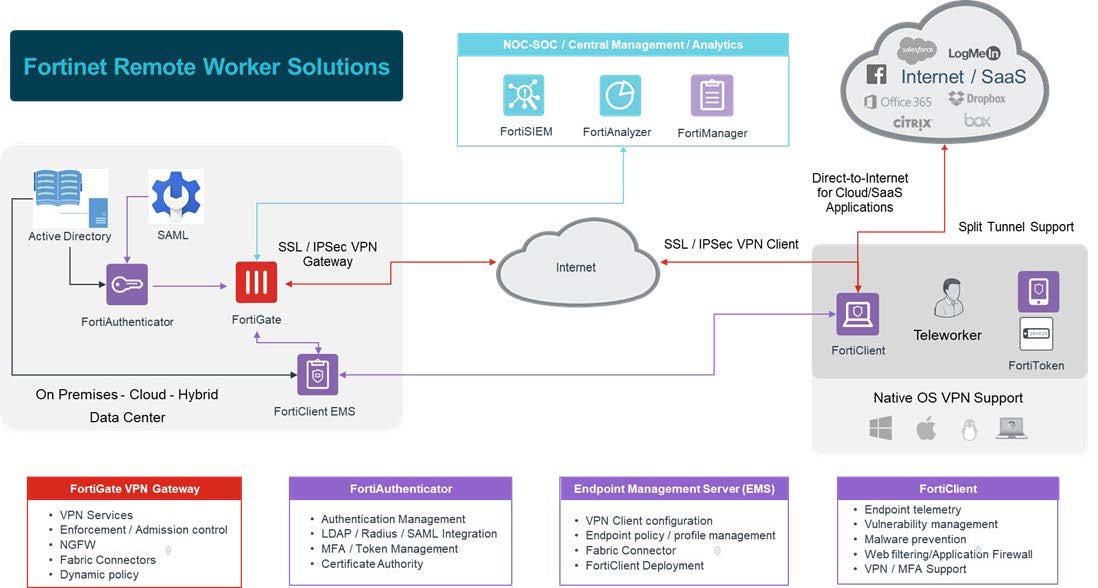
This can not only include the ability to operate in multiple parallel IT environments, but also the inclusion of staff system administrators, IT support technicians, and emergency responders.
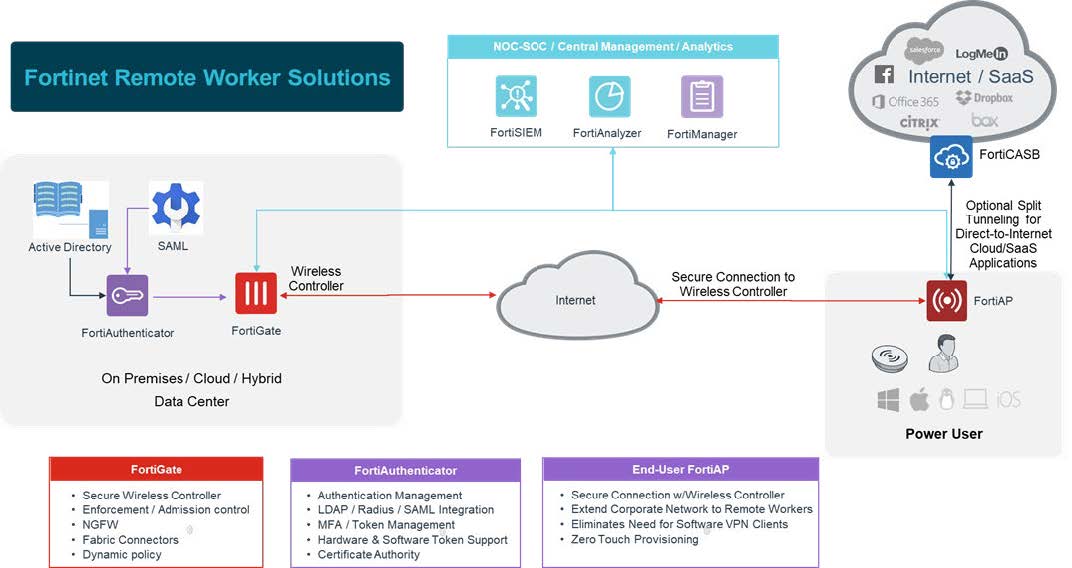
In short, for these users the deployment of an access point FortiAP in the alternative workplace, provides the level of access and security they require. As a result, providing secure wireless connectivity as well as a secure tunnel to the corporate network.
Just to illustrate, the FortiAPs can be deployed with ZTP (zero-touch provisioning) and will be managed by the FortiGate NGFWs in the office. For example, if a tcorporate phone needs to be deployed, it can simply be connected to FortiAP for connectivity back to the main office.

